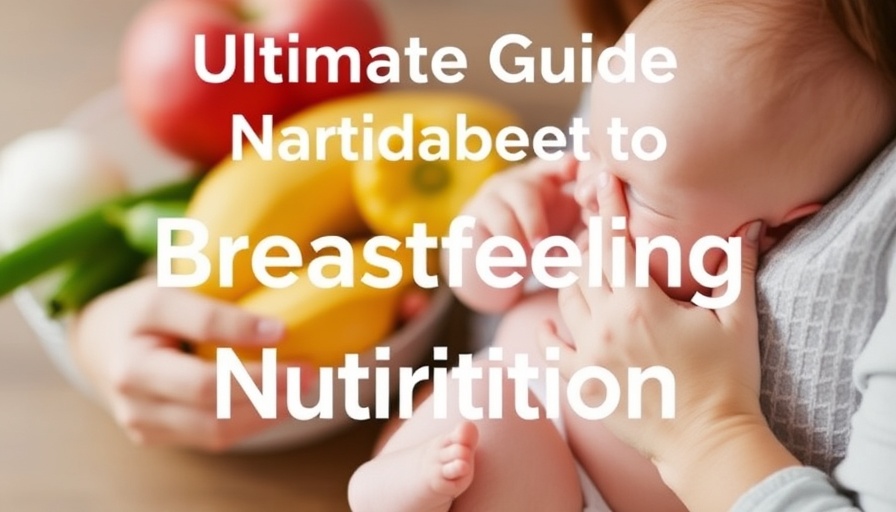
Understanding the Importance of Nutrition During Breastfeeding
August is National Breastfeeding Month, which serves as a reminder of the integral role nutrition plays during this special phase of life. For new parents in Pearl City, Hawaii, navigating those first days of feeding can be hectic. Health concerns, sleepless nights, and the sheer joy of a newborn can push feeding schedules to the backburner. However, focusing on your nutrition is crucial—not just for your baby’s growth, but for your own well-being, too.
Why Nutrition Matters for Moms and Babies
Did you know that human milk adapts its nutritional makeup based on your baby's needs? Often referred to as "liquid gold," it provides essential nutrients that change daily, aligning with your baby's development stage. This means any food you consume can directly impact the milk's quality and quantity. Nutrition is not just about satisfying hunger; it’s about replenishing your body after pregnancy and ensuring you’re passing down vital nutrients to your child.
Key Nutritional Elements for Breastfeeding Mothers
Understanding which nutrients are essential can simplify your diet:
- Calories: Increased calorie needs during breastfeeding help support milk production. Make sure to consume enough wholesome foods, such as whole grains and lean proteins.
- Hydration: Staying well-hydrated is crucial, as fluids influence milk production. Aim for plenty of water, herbal teas, and soups.
- Proteins, Calcium, Iron, and Vitamin D: Incorporating a variety of foods that are rich in these nutrients can dramatically benefit both you and your baby's health.
Making Balanced Meals Simpler
When life gets overwhelming, the goal isn't perfection but rather balance. One practical approach is to prepare meals that include a variety of whole foods. Foods rich in fiber, healthy fats, and protein can give you sustained energy. Consider batch cooking items like vegetable soups or stews that can be easily reheated for lunch or dinner, making it easier to eat well amidst a busy schedule.
Talk to Experts About Your Nutritional Needs
No one understands your body like you do, but they're also professionals who can provide personalized guidance. Consult your doctor or a qualified dietitian to discuss your unique dietary needs during breastfeeding. Supplementation may be beneficial, depending on your diet.
Behavioral Insights: Nutritional Changes and Emotional Well-being
Your diet impacts not just your physical health, but also your emotional well-being. Research indicates that a rich variety of nutrients may bolster emotional stability and lessen stress in new parents. This is especially significant during the postpartum period when mental health is often overlooked. By nourishing your body, you could also be nurturing your peace of mind.
Connection Between Diet and Baby’s Future Eating Habits
Another fascinating aspect of breastfeeding nutrition is how varied flavors in breast milk might help your baby transition to solid foods later on. If you eat a wide range of foods, your baby might be more open to trying different flavors and textures when it’s time for solids!
Actionable Tips for Busy Moms
Ready to enhance your breastfeeding nutrition? Here are some quick tips:
- Start your day with a nutrient-dense breakfast; think oatmeal topped with fruits and nuts.
- Keep a stash of healthy snacks nearby—nuts, fruits, and yogurt can be quick options.
- Plan a weekly meal prep schedule; it can reduce decision fatigue during a busy week.
As you embark on this beautiful journey of motherhood, remember: you don’t have to be perfect. Small, intentional dietary changes can lead to immense benefits for both you and your baby.
Embrace this unique phase of life, and don’t hesitate to seek support. Your nutrition matters, and it’s never too late to make healthier choices!
Are you ready to elevate your breastfeeding nutrition? Explore meal planning tools available in community health programs to help you take the next step toward a well-rounded diet!
 Add Row
Add Row  Add
Add 




Write A Comment